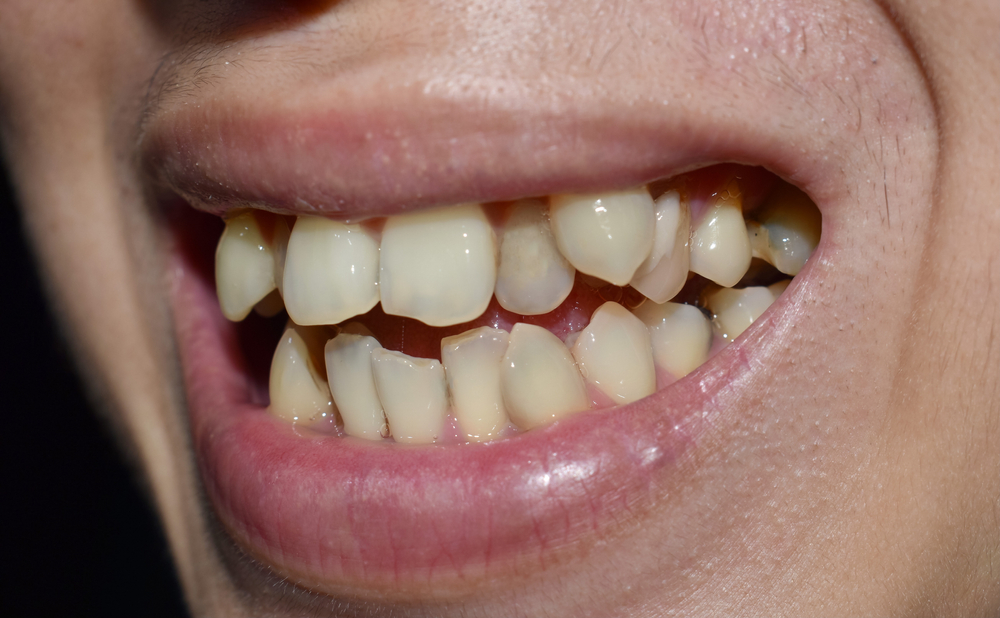Wisdom tooth impaction!! It is when your third molars get partially or completely wedged between your gums and jawbone.
Infection, tooth decay, and gum disease are just a few of the oral health issues that can result from this. Treatment for impacted wisdom teeth frequently involves surgical extraction.
To learn in detail about its symptoms, complications, causes, and more, keep reading!!
Table of Contents
What is an Impacted Wisdom Tooth?
What are wisdom teeth? They are the final set of teeth to erupt, also sometimes known as third molars. They often erupt (break through your gums) between the ages of 18 and 24.
Your wisdom teeth may occasionally erupt in line with your other teeth without causing any issues. However, sometimes they get caught completely or partially in your jawbone or gums, referred to as tooth impaction.
Impacted Wisdom Teeth Symptoms
Not all cases of impacted wisdom teeth result in symptoms. However, if an impacted wisdom tooth gets infected, harms nearby teeth, or results in other dental issues, you can exhibit some of these impacted wisdom teeth symptoms:
- Bad breath
- Bleeding gums
- Swelling in gums and around the jaw
- Jaw pain
- Bad taste in your mouth
- Difficulty in opening mouth
Causes of Impacted Wisdom Teeth
As mentioned before, the majority of the time, wisdom teeth typically erupt between the ages of 18 and 24. By this time, the jaw has frequently finished developing. Therefore, wisdom teeth may not fit in the mouth or jaw.
Because they lack enough space to properly erupt or develop, wisdom teeth (third molars) end up becoming impacted either partially (revealing parts of the crown) or fully (never break through the gums).
Also know about the common causes of toothache.
When to See A Doctor?
If you encounter any impacted wisdom teeth symptoms behind your final molar, visit your dentist right once. Your dentist will inquire about your symptoms. Furthermore, in order to determine whether your teeth are impacted and whether your jawbone or other teeth are harmed, he will also take dental X-rays.
So, if you are experiencing any symptom of wisdom teeth, consult with the best dentists near you. You can make an appointment via Healthwire.
Treatment of Impacted Wisdom tooth
Treatment options for wisdom tooth impaction may include:
Waiting and Monitoring – When You Have No Symptoms
Your dentist might advise waiting it out if there are no symptoms coming from your impacted tooth. With this method, your dentist will monitor the tooth on a regular basis to check for any issues rather than physically extracting it.
Surgery for Wisdom Tooth Impaction
Your dentist may advise extraction surgery if you’re suffering from pain or other unfavourable results from an impacted tooth.
Dr. Zargham Ayub, who is one of the top dentists in Pakistan says, in an oral surgeon’s clinic, tooth extraction surgery is typically performed as an outpatient procedure, allowing you to leave on the same day. You’ll probably be given local anaesthetic, and the surgery typically lasts 45 to 60 minutes. You should be able to go back to work or school a few days after the treatment, however recovery may take up to 10 days.
Are There Any Side Effects of Wisdom Tooth Extraction?
A wisdom teeth extraction may result in some:
- Pain
- Bleeding
- Jaw or site swelling
- Temporary difficulty extending mouth wide due to jaw muscle swell
You’ll be given advice on how to take care of wounds and how to control pain and swelling, including how to take painkillers and apply cold compresses to minimise swelling.
Complications of Wisdom Tooth Impaction
What happens if I leave an impacted wisdom tooth? You won’t be able to clean or maintain totally impacted teeth because they never emerge from the gums. As a result, you’ll more likely to experience issues with your teeth like:
- Tooth decay
- Cavities
- Crowding of nearby teeth
- Gum disease
- Infection
- Cysts development which can affect roots of nearby teeth
Learn about remedies for immediate wisdom tooth pain relief.
FAQs
Some of the frequently asked questions about impacted wisdom teeth include:
How Common are Impacted Wisdom Teeth?
Impacted wisdom teeth are very frequent. 90% of adults have at least one impacted wisdom tooth.
How Do Impacted Wisdom Teeth Affect My Oral Health?
Impacted wisdom teeth can harm neighbouring teeth and cause pain, infection, and discomfort. Additionally, cleaning wisdom teeth may be challenging. They are therefore more vulnerable to gum disease and tooth decay.
Can Wisdom Tooth Impaction Cause Headaches?
Yes. Impacted wisdom teeth can occasionally send pain radiating to your jaw, cheeks, and head.
Can I Prevent Tooth Impaction?
While you cannot prevent an impaction, scheduling cleaning and checkup appointments every six months allows your dentist to keep track of the development and eruption of your wisdom teeth.
Is it Necessary to Remove Impacted Wisdom Teeth?
You generally don’t need to have your wisdom teeth removed if they are impacted but not bothering you. However, if you begin to have symptoms, getting rid of them can lower your risk of developing other problems and enhance your general oral health.
How to Cope With The Fear of Tooth Extraction?
Although it may be intimidating to consider having a tooth extraction, postponing treatment can result in serious and long-lasting issues. Anxiety is a normal emotion and nothing to be ashamed of. You can consult you doctor for advice on overcoming your discomfort and anxiety.
Additionally, you can pick up relaxing techniques like deep breathing and visualisation. You may also ask your dentist or oral surgeon about sedatives or drugs if you suffer from significant anxiety.
